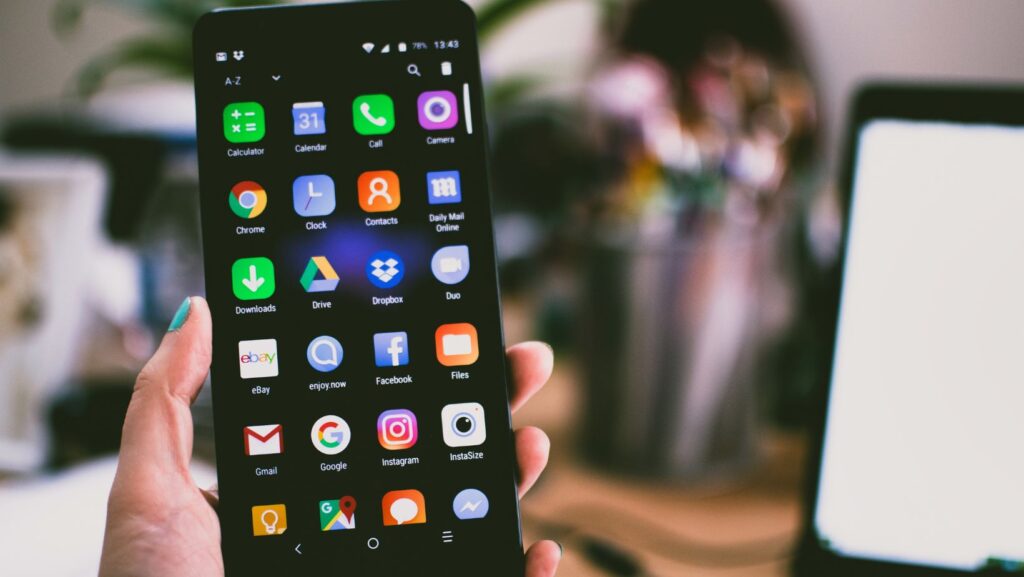More than half of all internet traffic comes from mobile devices, which is likely to grow in the future. Unsurprisingly, most websites and online services are being optimized for mobile users. Accessing them is difficult if you don’t have mobile internet access, which is a problem mobile proxies aim to solve.
Defining mobile proxies
Mobile proxy servers, or simply mobile proxies, are devices that can route your internet connection by using cellular data. Even if you are using a PC, you can send your requests to a mobile proxy, and it will connect to the web on your behalf. As such, the target server will treat you as a mobile visitor, allowing you full access.
Traditional proxies, such as datacenter or residential, provide the benefits of concealing your IP address and changing geo-location visible to the web servers. Mobile proxies achieve these purposes as well, but because they use smartphones and tablets, the IP address is, in most cases, dynamic.
Mobile data connections are made to provide internet for users that are on the move. They function by using a large interconnected network of cellular towers that are constantly communicating with mobile devices. Once a device moves to a range of another tower, the connections and IP address with it are changed.
To prepare for such mobility, operators cannot assign static IP addresses to users as thousands of devices connect and disconnect at any hour. Even if you keep a mobile device in one place, as is the case with mobile proxies, the IP address is likely to be changed by the provider after some time.

Most that providers can guarantee is a sticky session of a few hours with the same IP address. If this is a deal breaker for your use case, you should consider other types of proxies. For most applications, the IP change of mobile proxies is not a problem, as web servers expect mobile IPs to change often.
As a result, the IP change and the number of other mobile internet users make mobile proxies better at retaining your anonymity than other types. There are only two other problems that a good provider must solve – speed and affordability.
4G vs 5G mobile proxies
One could expect that the 5G proxy is the fastest mobile proxy type. On paper, at least, 5G internet is about ten times faster than 4G. In the future, it could be even faster. While this is true for mobile internet, a 4G mobile proxy can be as fast, if not faster, than a 5G one when used as a proxy.
When using a proxy server, its location is as important as its performance. In fact, the two factors are intertwined. Firstly, you might be unable to access the needed content if your proxy doesn’t support relevant locations. Secondly, the farther away your proxy server is, the slower it will perform.
the 5G internet network is most developed in large urban areas where there are a lot of users but not many commercial service hubs. You want your mobile proxy to be as close to the target server as possible to maximize performance. If you use a 4G proxy server, you’ll have a larger selection of locations, which ensures you will get more options for access and improved performance.
Unless your tasks rely on a high-speed connection, you won’t benefit that much from a 5G proxy. It’s better to save money with a 4G proxy. Besides, if speed is the main factor, you’re better off with a datacenter proxy anyway.
All this is not to say that 5G proxies are a bad choice. They are great, and no doubt will conquer the proxy market in the future. However, at this time, I think it’s more reasonable to use 4G for a couple of years until the proxy market has finally made the most use of 5G proxies.
How mobile IPs are sourced?
While you can get a commercial internet connection and run proxies on a server, it is more difficult with mobile proxies. The only way to get mobile internet access is to acquire a mobile device and insert a SIM card.

Some providers create mobile proxy farms with multiple smartphones in one place and install proxy software to provide services. However, such practice goes against the terms and conditions of most mobile internet providers, and it’s also bad for anonymity, as websites tend to locate proxy farms and ban their IPs.
Such practice is even more difficult in countries where the law requires each SIM card to be tied to a physical person. It allows mobile internet providers to notice you are using the connections for running proxies immediately. The only viable option then for most proxy providers is to use the connection of real mobile internet users.
That’s where using mobile proxies may get unethical. Proxy providers can source IP addresses legitimately – asking people to install their apps or other software and compensating them for the trouble. However, they can also use proxies illegitimately or even illegally.
The worst-case scenario is when shady proxy providers use networks of hacked devices to source their mobile IPs. Using such networks is not just unethical but might be illegal, depending on the laws in your country.
More often, providers try to lower the costs of acquiring mobile IPs by making deals with other service providers, for example, mobile games, to provide the connections of their users. In such cases, certain clauses are included in terms of conditions that inform the users about it.
Of course, nobody expects users to read these clauses, so while it’s technically legal, it’s definitely not ethical.
Wrapping up
As a consumer, you have the right to know how mobile proxies function and how the IPs are sourced. The best way to save yourself is to understand how mobile proxies function and when the IPs are sourced ethically. I hope this article has provided some background for this purpose.
